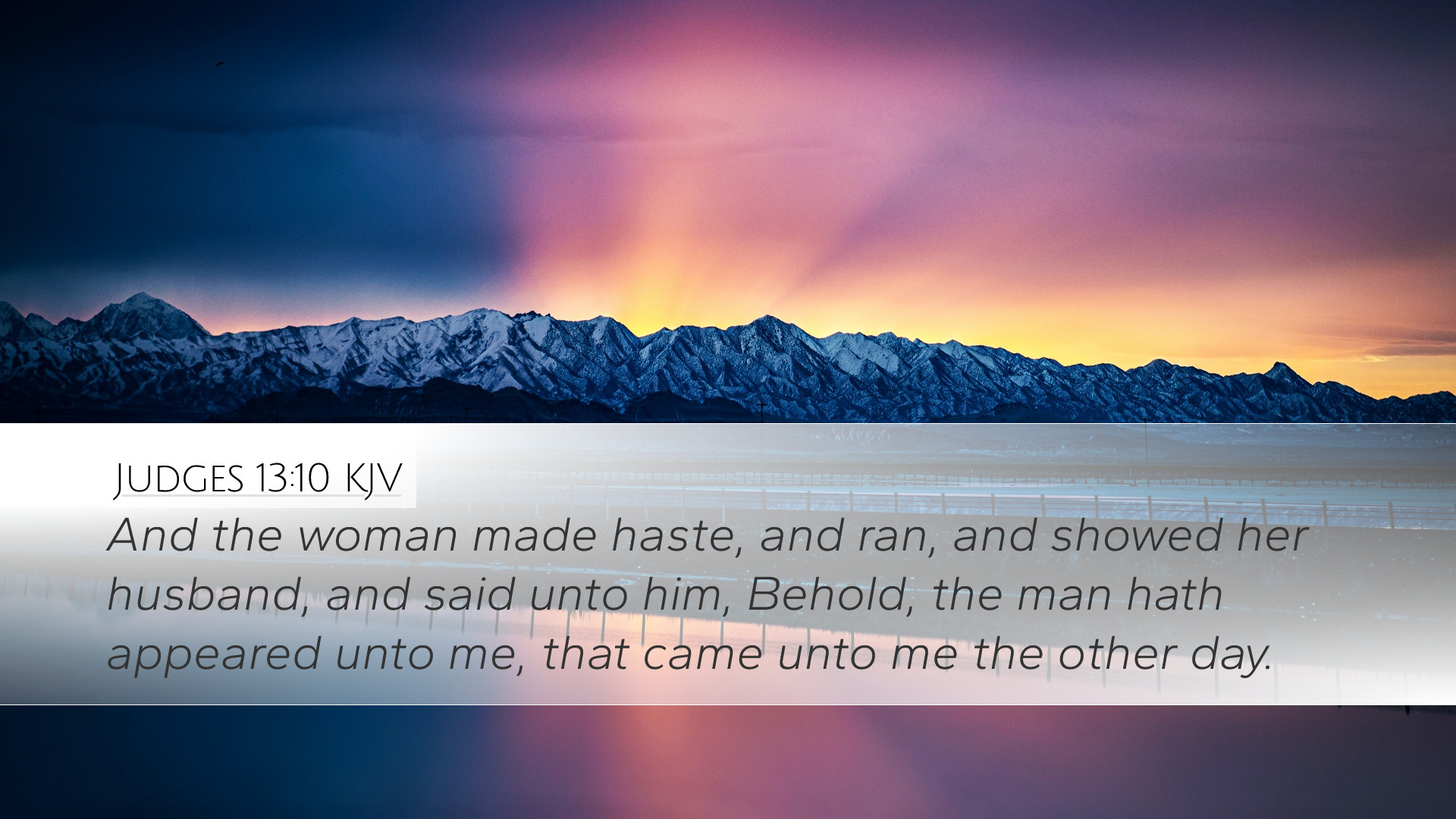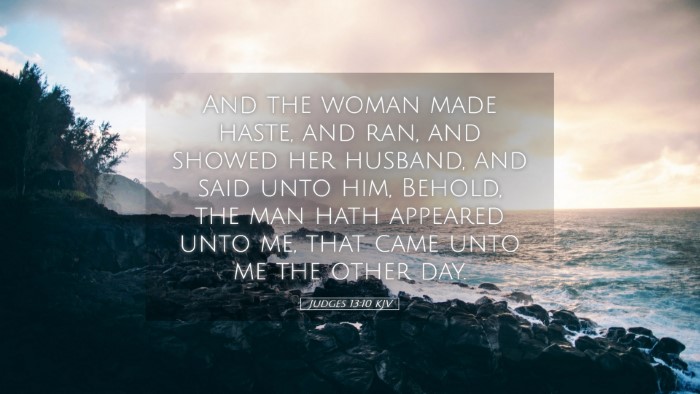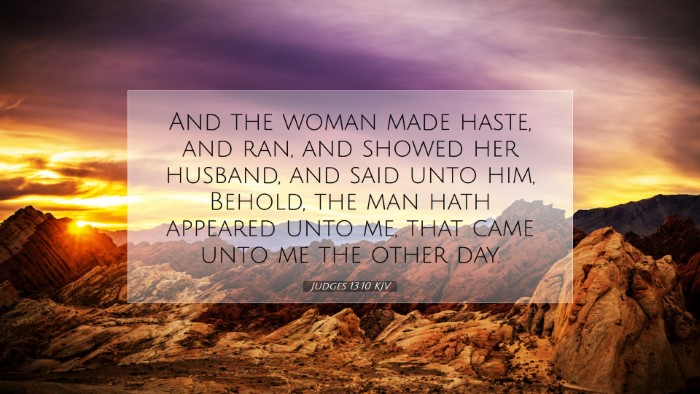Commentary on Judges 13:10
Verse: "And the woman ran and told her husband, saying, A man of God came unto me, and his countenance was like the countenance of an angel of God, very terrible: but I asked him not whence he was, neither told he me his name." (Judges 13:10)
Introduction
The narrative of Samson's birth in Judges 13 is rich with theological significance and prophetic implications. In this chapter, we encounter a special divine visitation, highlighting themes of God's sovereignty, human interaction, and the unfolding of redemptive history. This commentary synthesizes insights from Matthew Henry, Albert Barnes, and Adam Clarke to provide a thorough exploration of Judges 13:10.
Context and Background
This chapter introduces the Israelite people during the time of the Judges, a period characterized by cyclical sin, oppression, and deliverance. The Israelites had sinned against the Lord, prompting their subjugation by the Philistines (Judges 13:1). In response to their plight, God raises up a deliverer—Samson—through a miraculous and divinely orchestrated birth.
Historical Significance
As noted by Albert Barnes, the reference to a "man of God" in Judges 13:10 illustrates the prophetic tradition within Israel during this tumultuous era. The appearance of this heavenly messenger is significant, as it denotes God's direct intervention in Israel's history, promising salvation and deliverance through the forthcoming birth of Samson.
The Woman's Response
The verse opens with the swift reaction of Manoah's wife, who immediately relays the encounter with the celestial being to her husband. This act demonstrates her urgency and the weight of the heavenly message she received.
Insights from Commentaries
- Matthew Henry: Henry emphasizes the importance of listening and responding to divine revelations. The woman’s testimony to Manoah illustrates a crucial point; she recognizes the significance of the encounter and feels compelled to share it. She is depicted as a woman of faith, who immediately acknowledges the divine origin of the visitor.
- Albert Barnes: Barnes notes that this is an example of the divinely chosen means of communication. The woman acknowledges the divine nature of the visitor, especially by describing his countenance as "like the countenance of an angel of God, very terrible." This consideration highlights her awestruck recognition of God’s presence manifested through this messenger.
- Adam Clarke: Clarke brings attention to the husband's role in the narrative. He comments on the relationship dynamics in Manoah's family and how divine messages are often realized and validated through communal input. His wife's immediate response indicates her faith and the weight of the revelation, setting the stage for Manoah's own engagement with God.
The Nature of the Divine Visitor
The description of the "man of God" is critical in interpreting the text. The phrase "his countenance was like the countenance of an angel of God" signifies a powerful revelation of God's holiness and majesty. The term "very terrible" denotes not only fear but also reverence. This points to God's transcendent nature, as highlighted by Henry, who states that true encounters with God leave us in awe.
Theological Implications
This encounter is emblematic of how God reveals His plans to humanity through chosen vessels. It poses questions about our own receptiveness to divine messages. Are we as attentive as Manoah's wife? The depth of her acknowledgment serves as an example for modern believers to be vigilant in discerning God's voice amidst life's chaos.
Summary of Key Themes
- Urgency of Revelation: The need to act promptly upon receiving a divine message is emphasized through the woman’s immediate communication with her husband.
- Recognition of Divine Authority: By referring to the visitor as a "man of God," the text underlines the recognition of God’s authority in the lives of His people.
- The Role of Angels in Scripture: The mention of angels underscores their importance in God’s redemptive narrative, acting as mediators of His will and messages.
- Faith in Communication: Manoah’s wife exemplifies faith which serves as a model for believers—embracing and sharing God’s word actively.
Conclusion
The insights garnered from Judges 13:10 not only enhance our understanding of divine communication but also challenge contemporary readers to consider their receptiveness to God’s messages. The presence of the "man of God" illustrates God’s initiative in revealing His plan of salvation through extraordinary means. As we reflect on this passage, may we strive to emulate the faith and urgency demonstrated by Manoah’s wife and remain open to the divine encounters that shape our understanding of God's purpose in our lives.


